Here's Why a Safari Is the Perfect Honeymoon in 2022
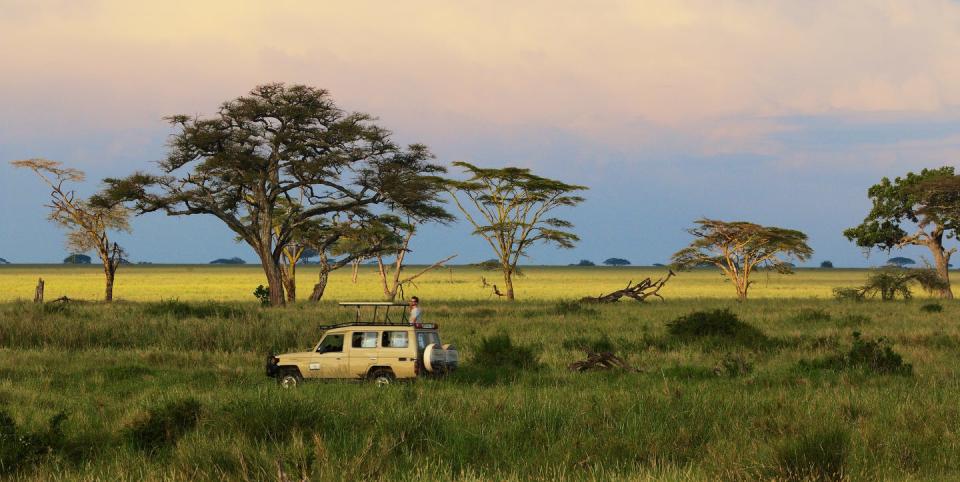
Long before I met my husband, I resisted the idea that a honeymoon should be the most incredible trip of one's life. Far too much pressure! I didn’t want to save a location or an adventure for a trip I wasn’t sure I’d ever be lucky enough to have. The fact that our own honeymoon would take place in 2021 knocked expectations down a peg further—we’d hoped to go to Japan, but the country remained closed to tourists. While researching vacations that felt, at a minimum, really special, we were finally swayed by imagery of couples outfitted in khaki wielding binoculars, a pride of lions in the foreground. Let’s go on safari!
Following the horrors and panic of 2020, an African safari was a surprisingly safe bet: It’s an outdoor activity sans crowds. I expected to buy a bunch of linen clothes and see some cute animals. What I couldn’t have anticipated was how much I’d absolutely love it. Within days of arrival in Kenya, we were observing lion prints in the dirt and translating their calls, naming varieties of bird, sensing by the awkward turn of a giraffe’s neck that a cheetah was approaching, and waking up at 4:45 a.m. in excitement.
Despite our intentions, we’d gone ahead and experienced the vacation of a lifetime. I wept daily from sheer wonder. But plotting the trip was a bit more complicated, and came with more questions, than a throw-a-bikini-in-a-weekender-and-go Caribbean stint. Here’s my best advice for those interested in hitting the savannah, as well as guidance from safari and African travel experts.
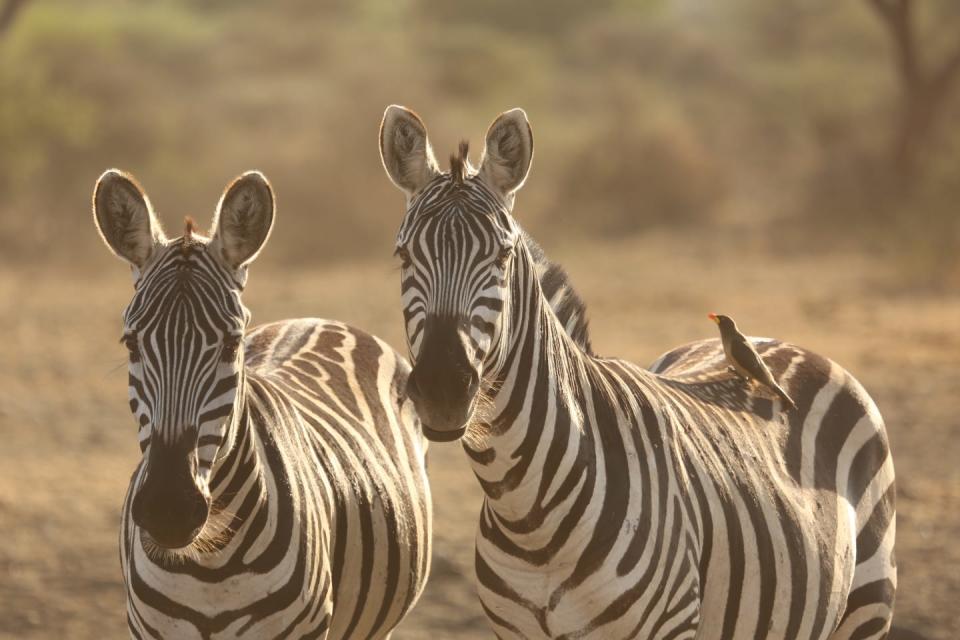
Where to go
Trying to narrow down which country, or even which area of the African continent, to see can be difficult, but a great place to start is simply asking yourself what kind of experience you want. “What's the most important to you? What type of wildlife are you looking for?” says Naledi Khabo, the CEO of the Africa Tourism Association. “If you want to couple the gorillas and the big five, you can do Rwanda, or Uganda and Kenya. Kenya and Tanzania are probably the most expansive safari experience. If you want to have a little mix of everything, then I would say you do southern Africa.”
Indeed, South Africa allows visitors to pack in cosmopolitan evenings and urgent history alongside enthralling nature. “You can be in Cape Town—enjoy beach, enjoy cityscape, enjoy the wine country—and still be able to do safari while you are in that one province,” says Jerry Mpufane, the president of South African Tourism, North America. Maybe honeymooners also like to combine a safari trip with some days vegging on the beach. “There are beach options that you can tag onto to an East Africa circuit,” says Liz Loftus, a private travel designer and sales manager at the safari travel company Alluring Africa. “It is possible to combine with the Seychelles or the Kenyan coast or Zanzibar.”
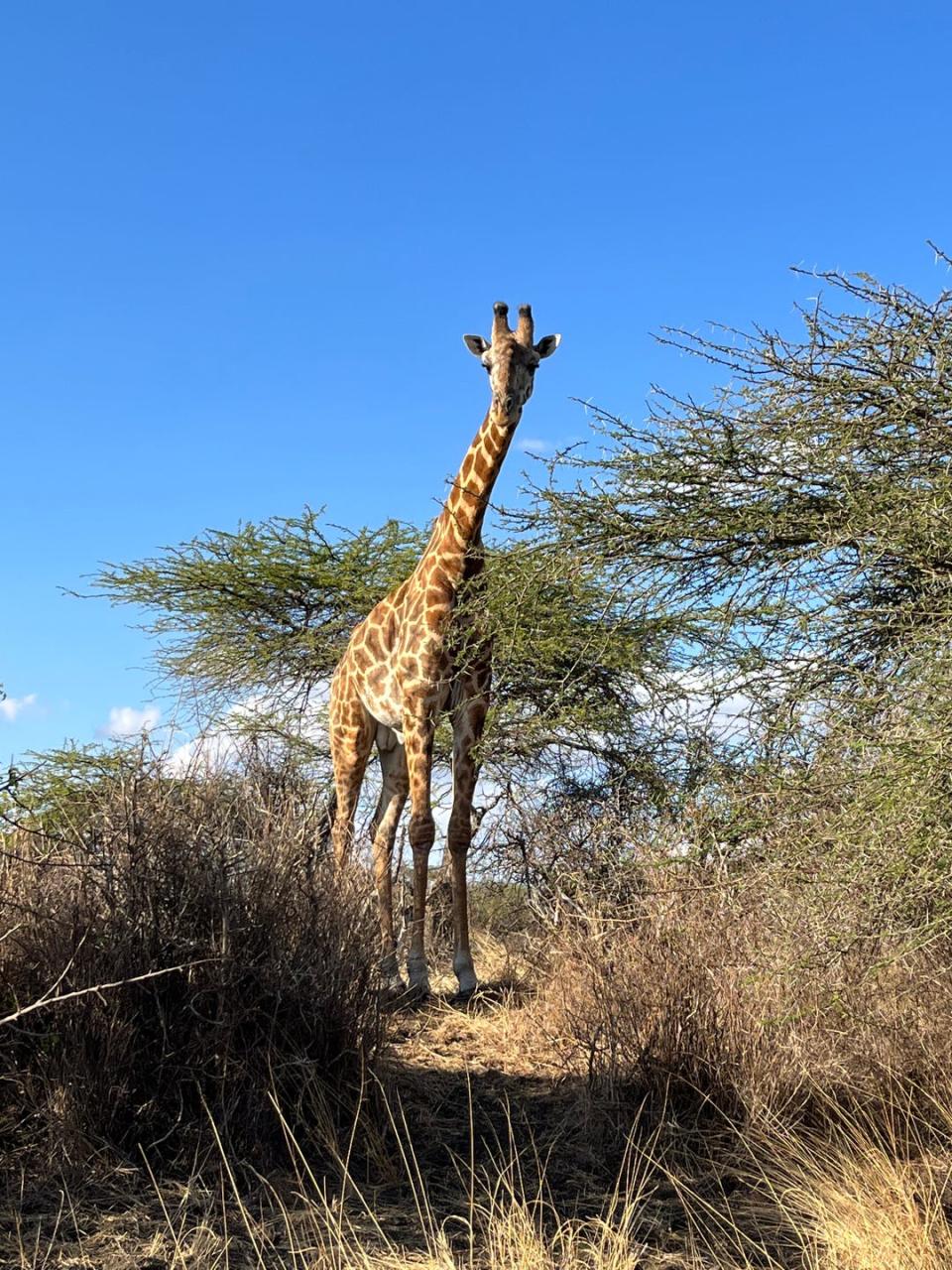
For my own trip, I really wanted to combine two countries to max out the time, and considered South Africa + Botswana or Kenya + Tanzania/Zanzibar. Ultimately, Covid-19 made it a poor time to hop borders, given testing requirements, but many of those restrictions have since changed. Instead, we hit up four stops within Kenya: two safari lodges with wildly different terrains (Chyulu Hills and the Maasai Mara), a beach, and time in the capital city.
When to go, and for how long
Given the American approach to vacation allotment, and that you may have just taken time off around your wedding, it can be difficult to request a significant number of days off for a honeymoon. But you already know you’ll regret it if you don’t.
Considering that even direct flights from the U.S. will take up a day on either end, “it's definitely an eight-day minimum, but I would much prefer to be looking at two and even three weeks,” says Charlotte French, a travel consultant and founder of Cavatica Luxury Travel. We stayed for two weeks, moving between regions about every three nights. “Usually we'll say a minimum of three nights in each safari destination, so that you can get a chance to tuck in and experience where you are. Two nights is pretty fast,” says Loftus. “There are a couple places in East Africa where two nights is acceptable, like the Ngorongoro Crater. But if you're in the Serengeti, maybe four, because it's vast and you've got more area to cover.”
And if relaxation is truly the name of the game, you could easily spend longer in a single lodge. I’d read a warning from a travel influencer that safari gets boring after three days, and now think that person lacks curiosity; I could have spent ten zen days following a single cheetah family on their hunts and been totally thrilled.
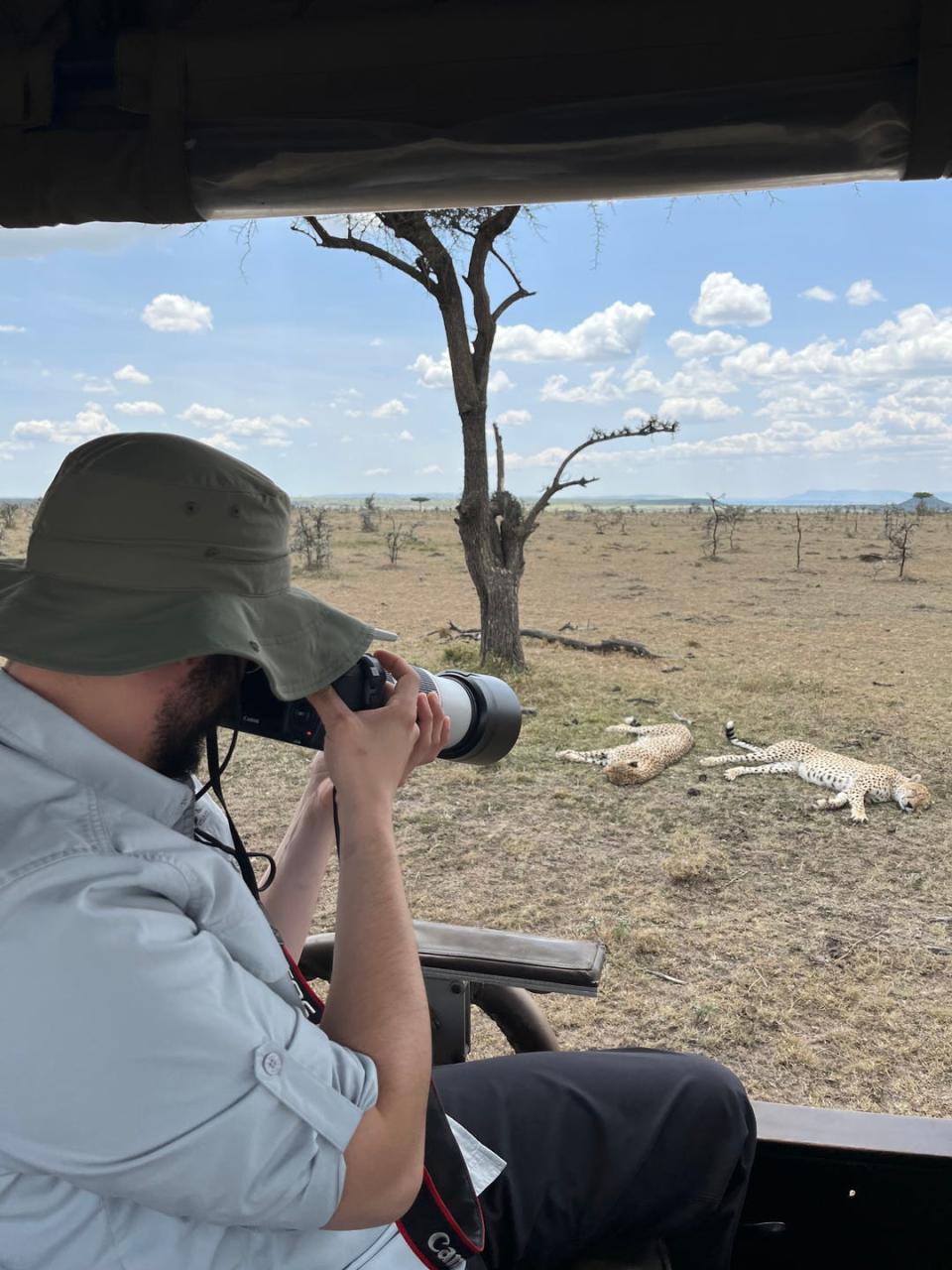
As for the seasonality, the experts say there’s really not a bad time to go. A big pull is the Great Migration in east Africa, the annual pilgrimage of herds of wildebeest, zebra, antelope and more as they search for food and water—and try to avoid the lions, leopards, and cheetahs that attack them like fish in a barrel. It takes place from May to December, though, so there’s loads of time to take it in.
Additionally, winter (the months of May through August) can be great in southern Africa because, “You’ve got less green and less leaves on the trees. It’s actually the best time to view all kinds of animals because you literally see more,” says Mpufane. And anyway, “We actually never experience a winter by Northern Hemisphere standards,” he continues, since temperatures are fairly warm year-round. Animals won’t need to hide from the blazing sun of mid-day, as they do in the warmer months (September through April), though spring might bring an abundance of baby animals.
It truly goes back to determining what you want to see. But alright, if there’s really a week to avoid? “The one time that's honestly the worst, only because of availability, is actually over the Christmas/New Year holidays,” says French. Rates go up, and lodges are booked years in advance.

What it will cost
There’s no way around it: A safari is a luxurious vacation experience, and the international flights and typically all-inclusive lodges are not cheap. But there’s certainly a range of the latter. “I would say luxury starts at around the $750 range per person per night and goes up from there,” says Khabo. Some destinations and their activities cost more than others, such as Rwanda’s typically $1,500 gorilla trekking permit for international tourists, or Botswana as a whole. “Botswana is definitely going to be your premium cost,” says French, “starting at $1,250 per person per day.” And that’s before international airfare, though with a bit of luck and hunting it is possible to occasionally find a sub $1,000 flight.
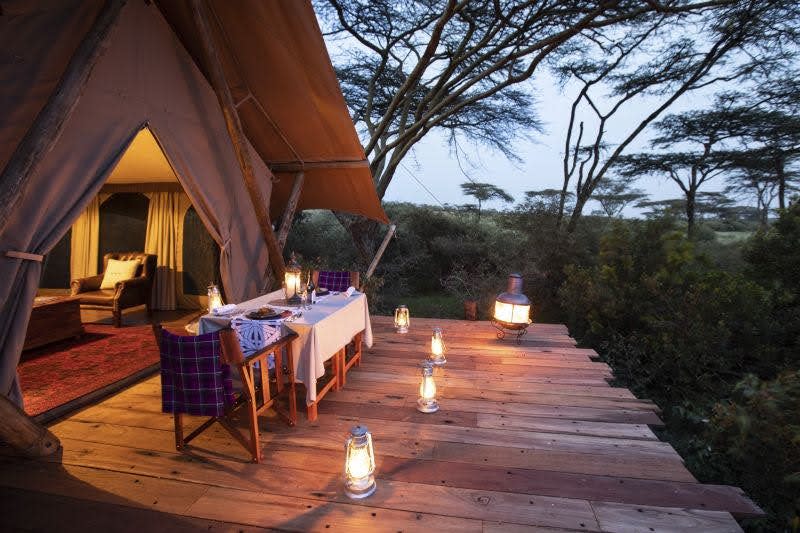
A tour operator or travel agent who specializes in safari travel can help bring costs down or help you determine where to spend and save if presented with an overall budget. “There are way to maximize the value for the dollar that you're spending, whether that's utilizing shoulder season pricing or these honeymoon discounts or a long stay,” says Loftus. “Maybe it's ‘No, you're not going to get a 14-day trip, but we can do it in 10 and check off all of the things that are the most important to you.’” These experts will also know which lodges are looking to fill a room, which are recently renovated, which are housed within the same hospitality group and might offer a discount, and so on.
What to pack
In my pre-safari ignorance, I really thought that all the khaki and olive-colored clothes were kind of a shtick. A costume! But it turns out that no, folks generally wear the neutral colors of the surrounding savannah, in cotton or linen fabrics, for a few solid reasons: Bright colors can distract the animals, white gets dirty in the dust, and dark shades attract tsetse flies, not to mention the hot equatorial sun. Worry not, though—you don’t need to buy an entirely new wardrobe for the experience. A tour operator, travel agent, or the lodge itself will likely have a suggested packing list, but I ultimately packed a total of three safari outfits (combos of t-shirts, linen buttondowns, and linen joggers or leggings) that I mixed and matched.
“Pack less and not more, and remember that certainly, [at] any luxury lodge, they're going to do laundry, same day or overnight,” says French. Indeed, we were able to wash our clothes at each stop. Khabo has another mantra: “Layers, layers, layers,” she says. “If you remember nothing else, remember layers.” Temperatures can drop to the 50s or lower at night and in the mornings, while reaching the 80s mid-day. My husband and I were fine in a fleece jacket or heavy sweatshirt, plus wide scarves and hats with wide brims.
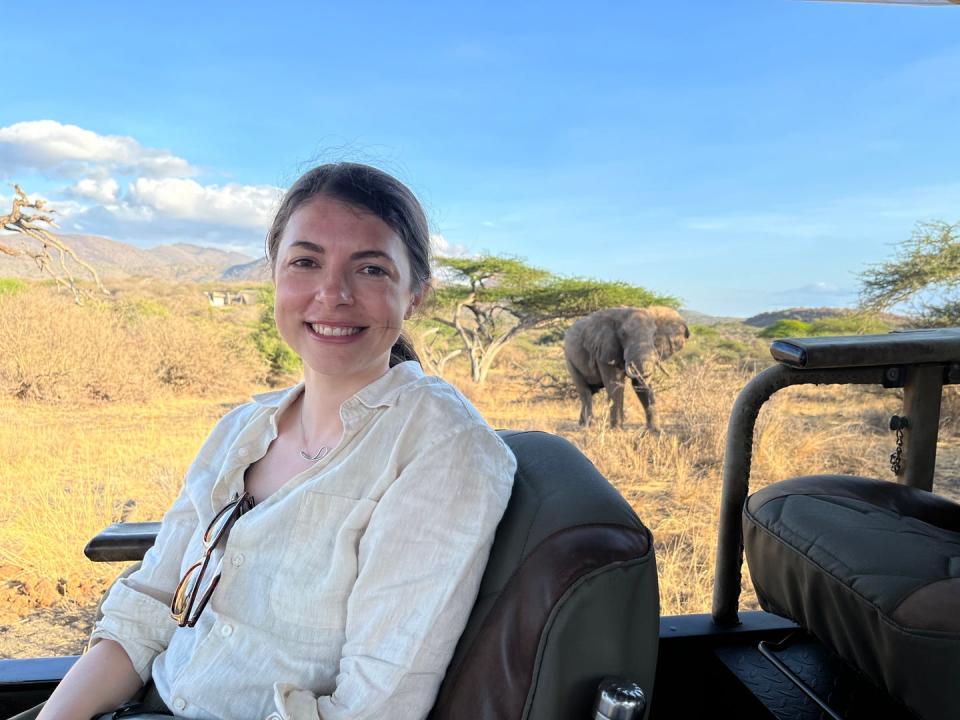
Another thing to keep in mind is that lodges are often reached by tiny airplane, which often have weight limits around 20 kgs (or 44 lbs) for a passenger’s entire bag allowance, meaning main suitcase and carry-ons combined. And the main suitcase should actually be a soft-sided bag like a duffle, no wheels. “Almost all of the smaller planes you're going to fly on, they're going to require a soft-sided bag,” says French. “I can't tell you how many times I've been traveling and an American's turned up with great big, standard hard suitcase, and they can't get them in the plane.”
Among my most urgent packing tips? Bring ear plugs. On night two of our trip, while tossing and turning with jet lag, we were woken by a family of lions roaring playfully outside our room for hours. What at first was a spooky delight ultimately became a sleep ruiner.
What to know about Covid-19 precautions
While restrictions are gradually lifting around the world, a negative PCR test is still required to enter many African nations as of mid-2022, though rules vary by country and change often. Check the website of a country’s embassy or the U.S. State Department’s list of country-specific information to see what you need. Vaccination rates are lower than in the U.S., owing to lack of supply, but in my time in Kenya, masking and public signage around hand-washing and other precautions were more widely adopted than what I’ve experienced at home in New York City. Plus, our lodges had changed their mealtime procedures to distance guests, primarily outdoors, among many other safety measures.
Still, for all the obvious reasons of the last two years, purchasing travel insurance is a great idea, in the case you get sick before or during your trip and need to alter arrangements. And this is another case where a travel agent or operator can really help, whether it’s by keeping on top of the restrictions or arranging your PCR test to return to the U.S.
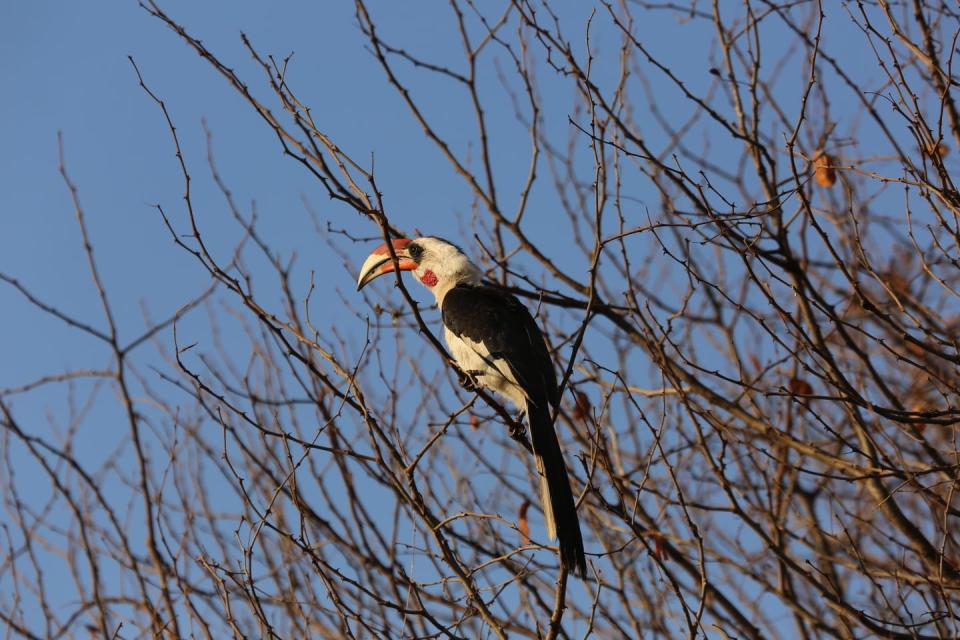
How to get the most out of a trip
It took us a day or two of the safari experience to get a handle on how it worked: Generally, at our lodges, two game drives were offered per day, in the early morning and late afternoon, with a long break in the middle for lunch, naps, and general relaxation. We set the start times with our guides, which in our case meant gathering before sunrise because we were just so excited.

“From a purely logistical perspective, it's definitely [about] communicating what your preferences are, either before arrival or right upon arrival, and getting an understanding of what your options are,” says Khabo. “If it's not communicated, you may miss out on an opportunity.” If we wanted to try out the other possible activities—safaris on foot or bike or horseback, say, or glimpsing local art or shopping, or taking visit to the nearest village—we had to let the staff know so they could plan it for us.
Another aspect we didn’t realize right away was that we could simply ask our guides to find our favorite animals for us. “They can't guess what you're interested in. They really want to talk to you, and they're incredibly knowledgeable,” says French. “Don't get in a vehicle and not strike up a conversation. Those conversations with your guides are going to be the most memorable of the trip, too.”

We chatted for hours with our two guides: One told us about his upbringing within the Masaai while we sipped coffee under a banyan tree, and taught us about each tooth in the old jaw bone of a zebra we found in the dirt; the other took our challenge to spot the extremely elusive leopard seriously and finally delivered, with glee, under the pink sky of our final night, a mother and baby nuzzling in the tall grass.
You Might Also Like

